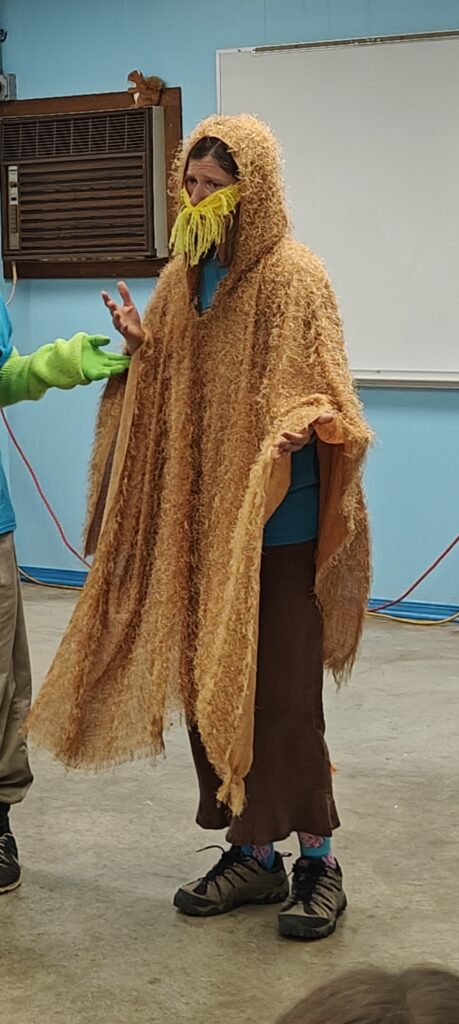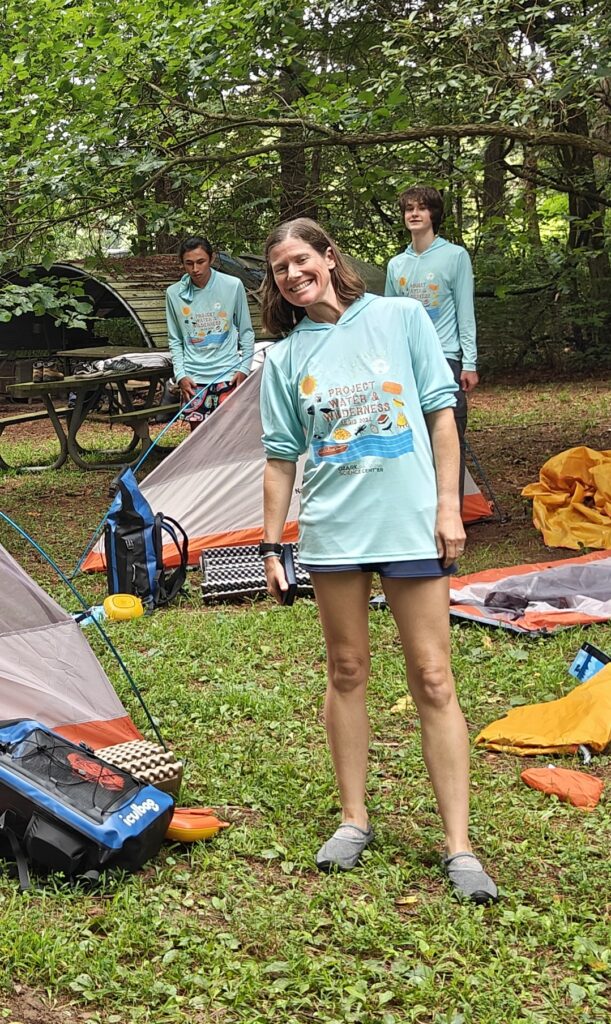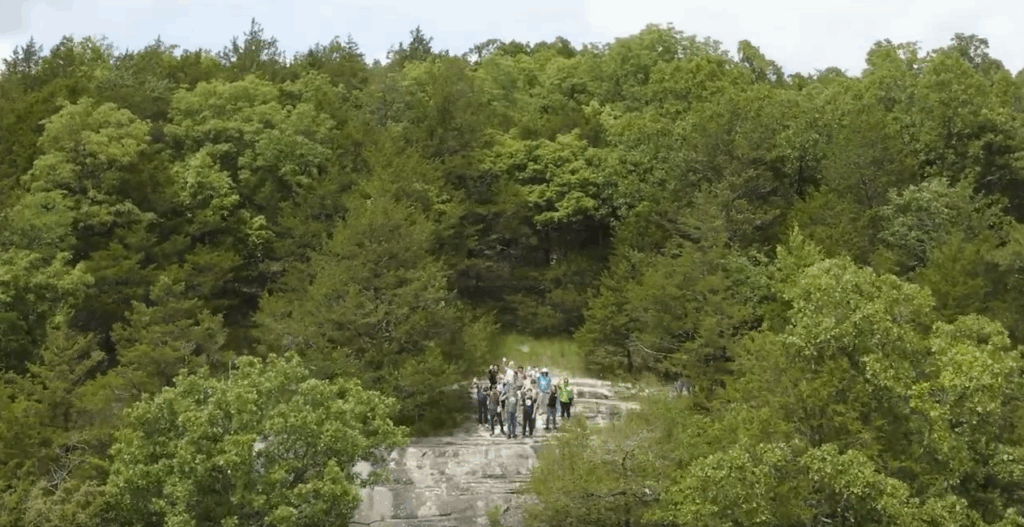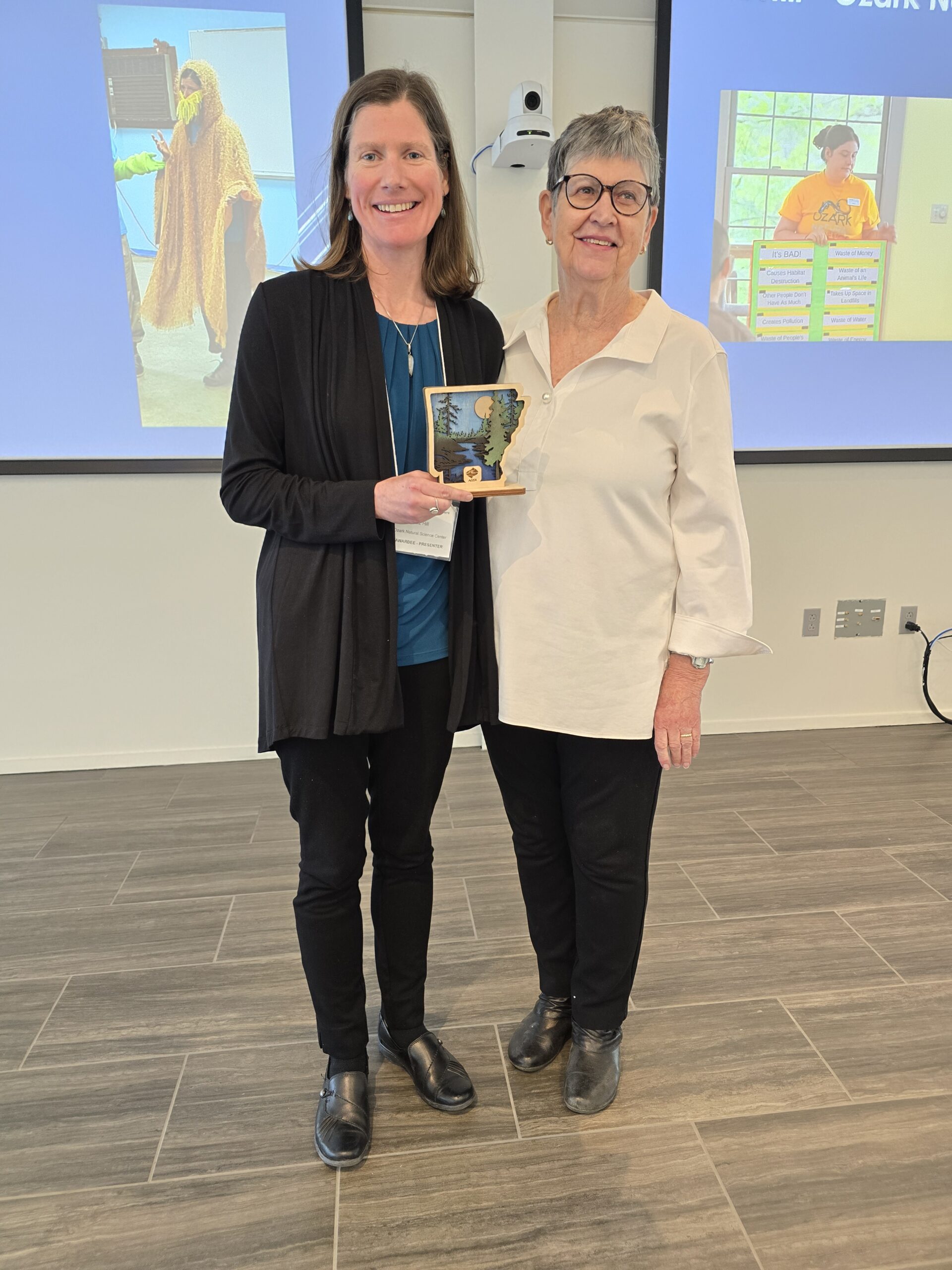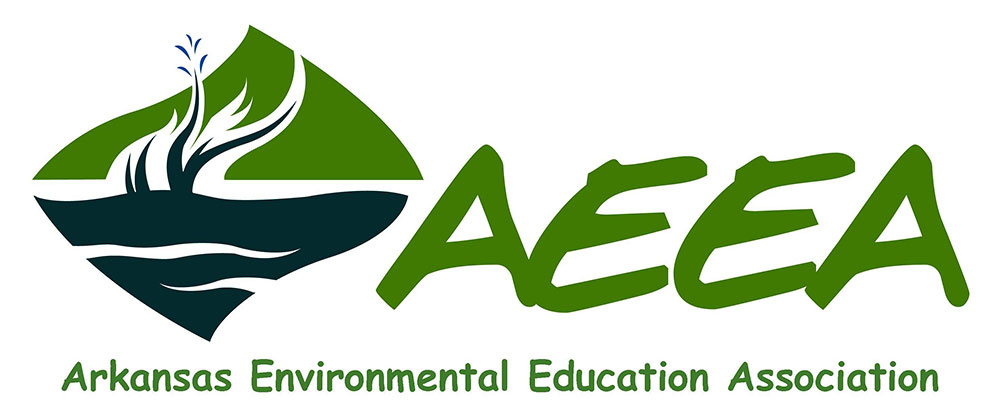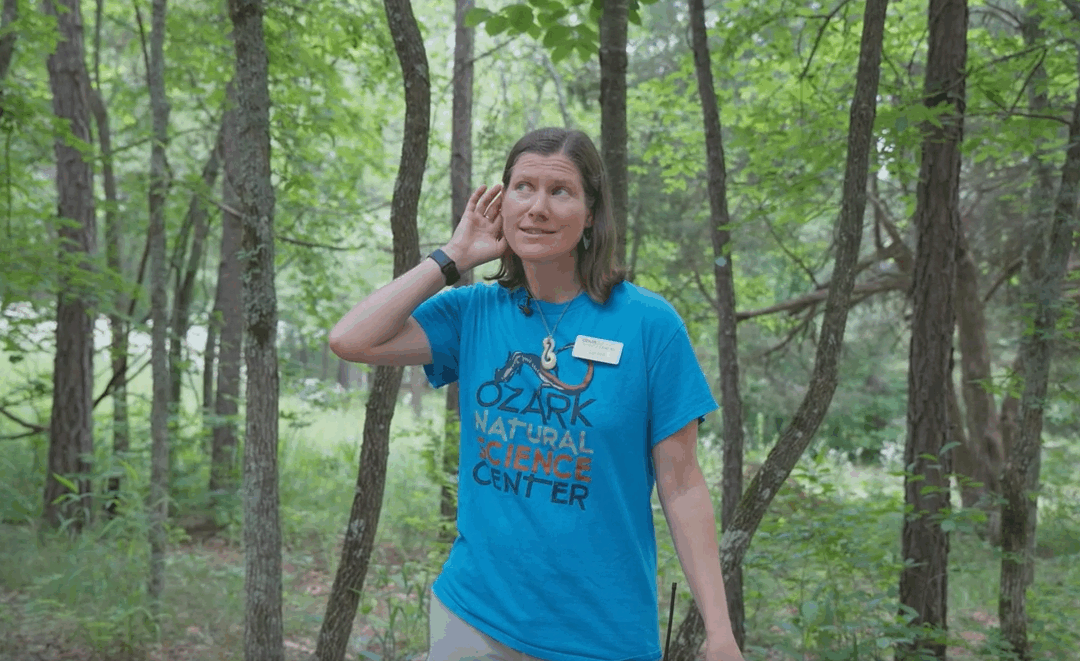Liz Hill is one of three educators who were recently recognized for their dedication and passion to environmental education. At the 2025 AEEA Conference, Liz was presented with an award for being an Outstanding Environmental Educator in Non-formal Education. Pictured above is Liz listening for sounds of wildlife in the woods at the Ozark Natural Science Center.
Learn more about Liz below.
Written by Stephanie R. Lewis
Inspiration & Connection
Liz HIll’s love for nature started long before she became an environmental educator. Growing up, she spent countless hours exploring the outdoors in her own yard, hiking along rivers, and swimming in lakes with her family. But it wasn’t until attending the Academic Enrichment for Gifted/Talented in Summer (AEGIS) Wet’n’Wild camp at the Ozark Natural Science Center (ONSC) that Liz started on her path. This experience ignited her passion for conservation and led her to study environmental education at the University of California at Berkeley, where she designed her own interdisciplinary major.
Nature was an integral part of Liz’s life. Her childhood was marked by a deep sense of curiosity and connection to the environment. These early experiences sparked a lifelong passion for nature that would eventually lead her to a career in environmental education.
“I truly believe that one of the most important things I can do in my life is to help other people enjoy and care about nature so that they will help to protect and restore natural areas and our wider Earth.”
Favorite Memory with Students
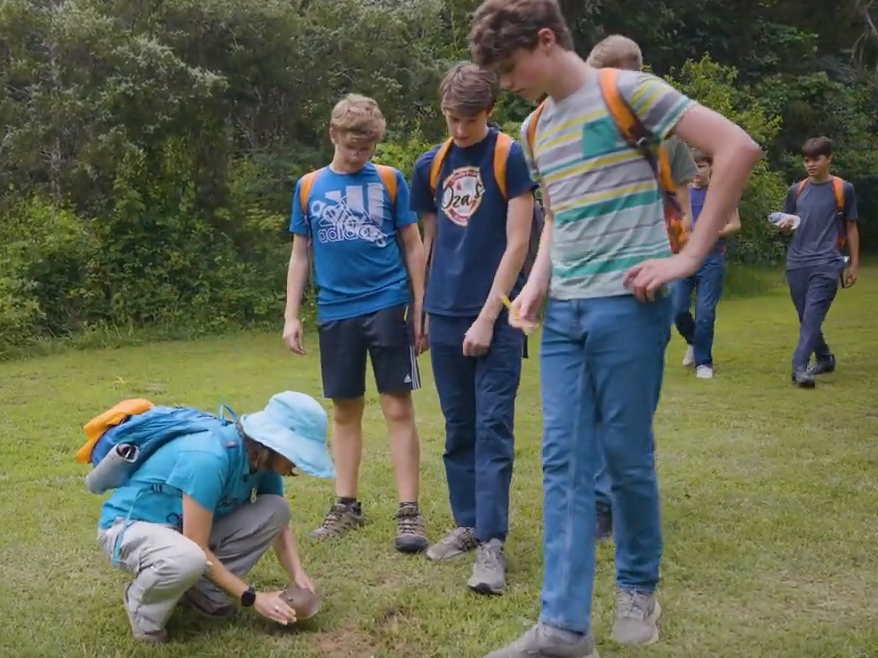
One of Liz’s most memorable moments with her students took place on a hike at ONSC, early in her teaching career. The group was listening to the sounds of blue jays when, unexpectedly, a hawk flew past them, talons gripping a blue jay! The group had been learning about bird calls just moments before, and this rare sighting allowed them to witness nature in action.
Advice for Someone Who Wants to Explore the Outdoors
Liz recommends starting with local parks or familiar natural spots. Keeping a notebook to record observations and reflections can deepen one’s connection to the environment. As you begin to be comfortable, she encourages exploring larger areas, such as state or national parks, and joining outdoor activity clubs or guided experiences for those who want to learn alongside others. If you want to explore outdoors with others, and don’t know people yet to go with, look into hiking or other outdoor activities clubs, or find offerings of guided experiences through nature centers, state parks, outdoor centers and other organizations.
Technology in Outdoor Education
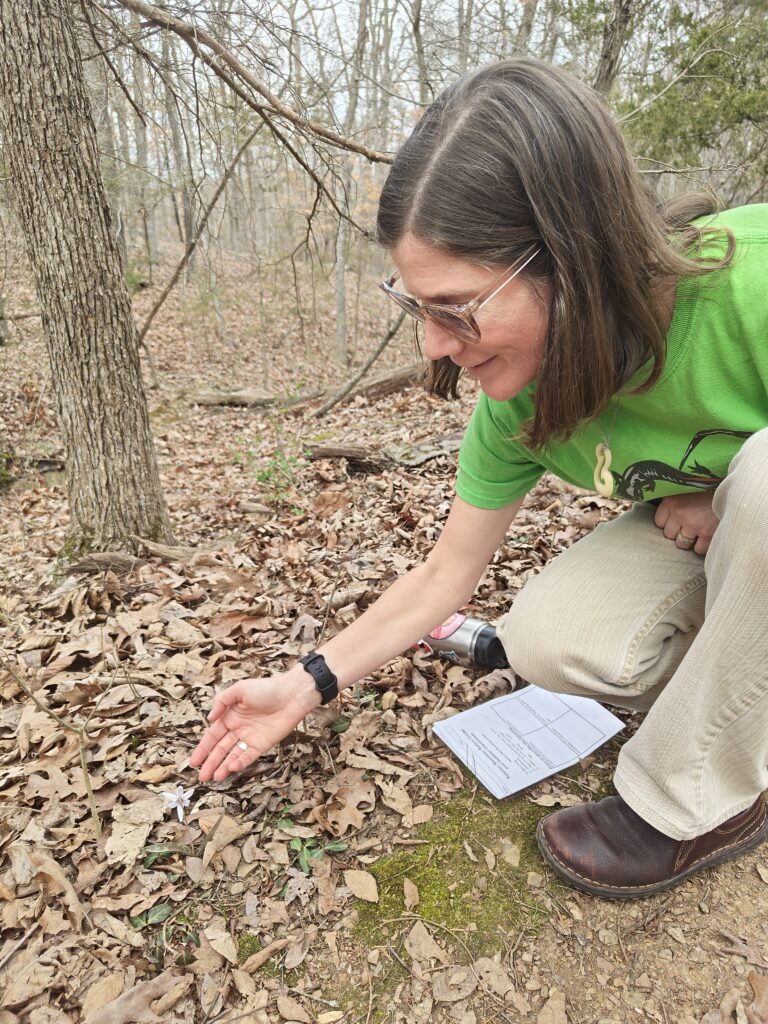
“There are certainly helpful tools (like binoculars, telescopes, microscopes, etc.) which are forms of technology which can be very helpful for helping to really observe different parts of nature much better than without them. And, there are some great apps on phones and tablets now which can help with identification of species and sharing information with others (including scientists who are doing research in different fields). But, I think some of the heavy use of phone/app technology is also moving people away from working their brains to use field guides (and even knowing what kind of features to be noticing/observing) to identify species. So, I think it is still important to address how to observe carefully, what features to observe, etc., and not go straight to devices to ID.” explains Liz.
Inclusive Learning Environment Outdoors
Inclusivity is at the heart of Liz’s teaching philosophy. Whether she’s guiding a hike or leading a nature activity, Liz emphasizes the importance of appreciating the unique value each individual brings to the group. While outdoor environments may present challenges in terms of physical accessibility, Liz makes every effort to adapt her lessons and activities, ensuring that all students can engage with the environment in a meaningful way.
“To be inclusive, you must recognize and appreciate the unique value and worth of each individual, as we do in the elements of an ecosystem.” says Liz.
She encourages using all of one’s senses throughout any experience.When guiding outside, have various visual and written resources available to help explain and demonstrate concepts, etc. whenever possible. She feels nature makes such a great place to explore with all of the different senses, to help engage people with all different abilities, backgrounds, age levels, etc.
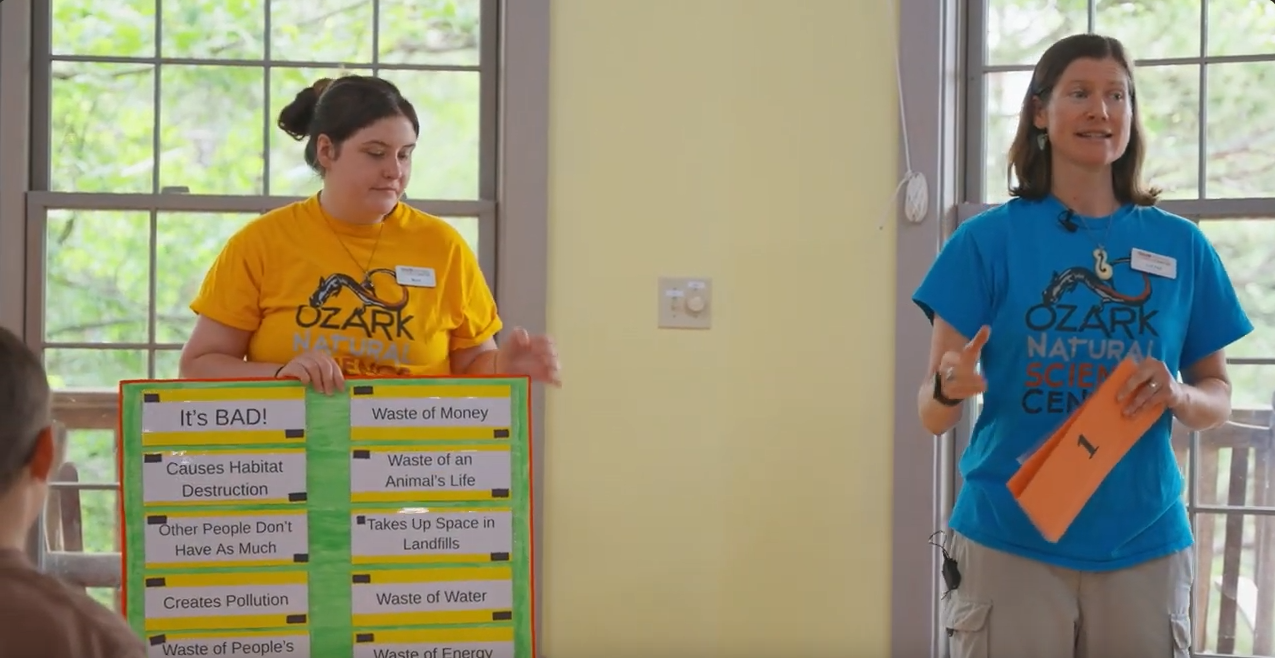
Advice for Aspiring Environmental Educators
For anyone looking to become an environmental educator, Liz advises seeking mentorship and learning from experienced naturalists, educators, and scientists. Observing and working alongside professionals can provide invaluable insights into different teaching styles and deepen one’s knowledge of the natural world.
Through her passion, dedication, and love for the natural world, Liz continues to inspire countless students to connect with nature and become stewards of the Earth. Her approach to environmental education not only teaches knowledge but also fosters a sense of curiosity and responsibility that will stay with her students for years to come.
